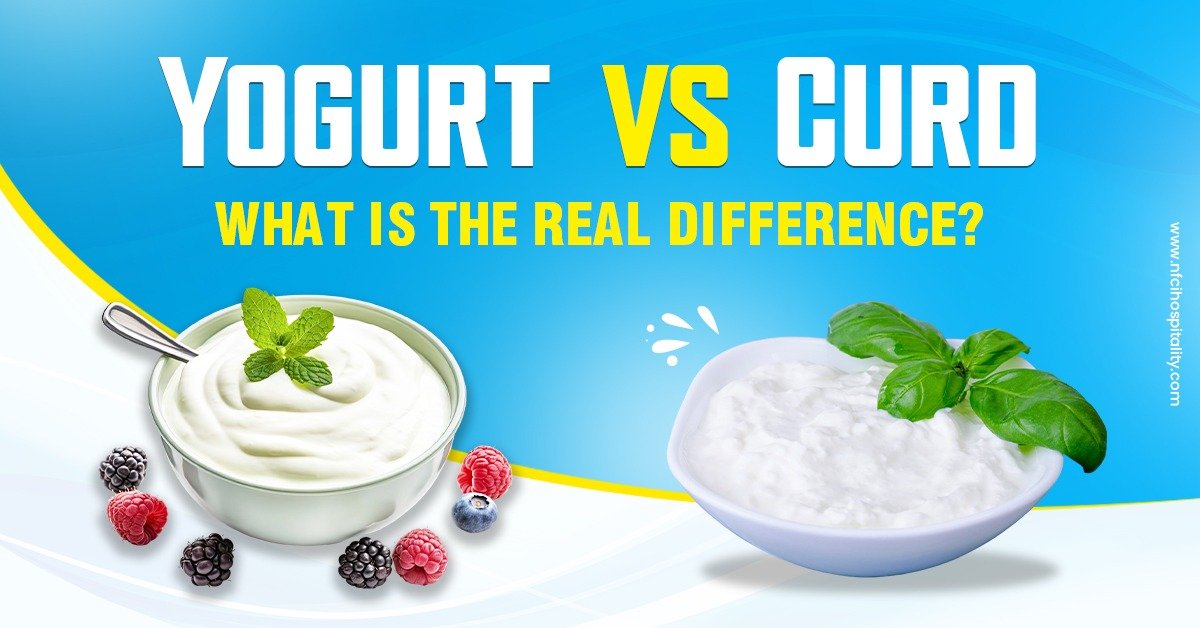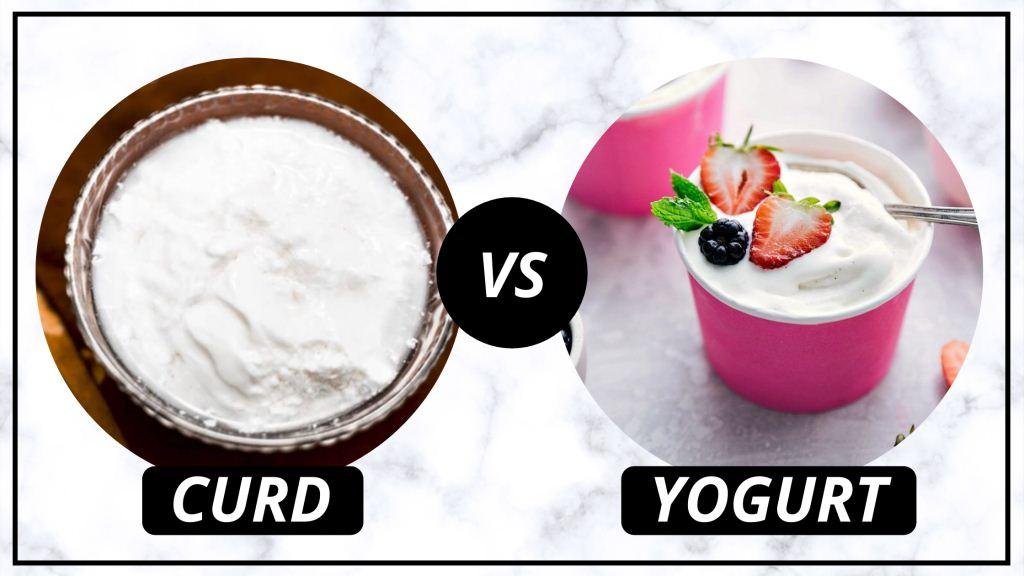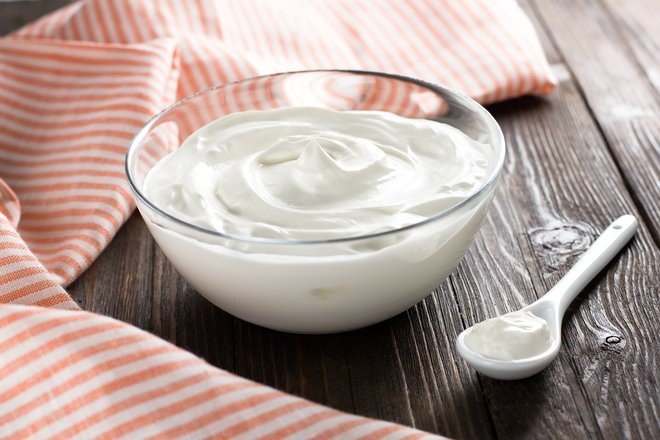
Yogurt vs Curd: What is the Real Difference?
Summer is here, and with the rising heat, cravings for lighter foods that are easy to digest and help keep the body cool begin to grow. To beat the peak summer days, it’s the perfect time to enjoy cold food items and refreshing beverages. Among these, Yogurt and curd play an important role. However, a common question that arises in many people’s mind is: Are they the same or is there a key difference between them?

No doubt, both are dairy products, look similar and are known to aid the digestive system but they differ in some important aspects.
In this blog, we will uncover the key differences between them clear up the ongoing debate on this popular culinary topic and what’s really better for your digestive system?
What is Yogurt?
It is a scientifically crafted dairy product made by fermenting milk using specific bacterial cultures such as Lactobacillus bulgaricus and Streptococcus thermophilus. These good bacteria are known as probiotics, which means “for life.”
The fermentation process breaks down lactose (the sugar in milk) and produces lactic acid, giving yogurt its creamy texture and tangy flavour.

Yogurt Health Benefits:
- Balances gut microbiota with live cultures
- Improves lactose digestion
- Strengthens immunity by supporting gut health
- Helps manage weight and improves metabolism
- Even supports clearer skin by flushing out internal toxins
- Enhances nutrient absorption
What is Curd?
Curd is known as Dahi in India. It is a home-made dairy product prepared by curdling warm milk using a spoon of existing curd, or an acidic agent like lemon juice or vinegar.
Curd doesn’t contain standardized bacterial strains. The bacteria in curd are natural and vary from batch to batch, depending on temperature, milk quality, and method of preparation.

Curd Benefits:
- Good source of calcium, potassium, and protein
- Aids in digestion, although inconsistently
- Easy to make at home
- Soothes the stomach in hot weather
Scientifically Speaking: Curd is fermented, but the bacterial profile is unregulated—meaning its probiotic benefit is hit or miss.
Yogurt vs Curd – A Comparative Breakdown
Go through the below table to know the differences:
|
Features |
Yogurt |
Curd |
| How it’s made |
Made using special good bacteria |
Made at home using a spoon of old curd |
| Type of bacteria |
Fixed and healthy bacteria (probiotics) |
Natural bacteria (can change anytime) |
| Health for digestion |
Very good for digestion |
Good, but not always helpful |
| Taste & Texture |
Thick and slightly sour |
Softer and less tangy |
| Shelf Life |
Stays fresh longer in the fridge |
Spoils quickly so better to eaten fresh |
| Consistency |
Always the same quality |
Quality changes with each batch |
| Best for |
Gut health, immunity, skin, weight loss |
Cooling, light meals, simple dishes |
Why your Digestive System Prefers Yogurt?
It’s important to balance your gut health. It’s like a bustling city of microorganisms. You need good bacteria to keep it balanced. Here, yogurt is very helpful due to its live probiotic cultures, provides exactly that a controlled, powerful dose of gut-friendly microbes that:
- Reduce bloating
- Prevent constipation
- Ease acidity
- Combat harmful bacteria in the intestines
It is not just a dairy product, it’s a functional medicine.
Still Love Curd? Here are the things you should know!
Curd doesn’t offer probiotic power as yogurt does, but still it deserves the place on your plate. When curd is prepared hygienically and consumed fresh, it provides:
- Cooling effect in summer
- Nutrients like calcium, vitamin B2 and B12.
- A good source of hydration
However, don’t rely on curd alone for gut related issues. If you’re looking for food supporting your digestive system, yogurt is the more effective choice.
Quick Tip: How to find Real Yogurt
It is important to check the label when buying. Look for phrases like:
- “Contains live and active cultures”
- “Probiotic”
- Named bacteria like Lactobacillus acidophilus or Bifidobacterium
Avoid flavored yogurts with excess sugar or artificial additives. The healthier option? Go for plain, unsweetened yogurt and add fruits or honey for natural flavor.
Which One to Choose?
|
Goal |
Pick one |
|
Daily gut health |
Yogurt |
|
Homemade dairy addition |
Curd |
|
Lactose intolerance relief |
Yogurt |
|
Summer cooling meal |
Curd |
|
Weight management |
Yogurt |
Final Thoughts
Both curd and yogurt are nutritious byproducts of milk. Each holds unique place in a healthy diet routine. The choice between them depends on your individual dietary needs, health goals, taste preferences, and even culinary habits.
- Yogurt is best if you’re looking for gut health, immunue support, or lactose digestion
- Curd still has a comforting role if you enjoy fresh, homemade dairy with a softer flavor profile.
Balance is key. Know your body, understand your goals, and make an informed choice that aligns with your lifestyle.
Master Dairy-Based Dishes like a Pro
“The art of cooking begins with the science of ingredients. At NFCI, you’ll master both.”
At Nfci (National finishing and cookery institute), we go beyond just recipes. Our culinary program offers you an in-depth knowledge in food science, fermentation, and dairy techniques that help you:
- Understand the role of probiotics in food
- Learn health-focused recipe innovation
- Get industry-ready with hands-on training
- Earn Govt.-recognized certification with 100% placement support
Join NFCI today and transform your passion for food into a meaningful, successful career.
FAQs
Q1. Yogurt vs Curd – Which is Better?
Ans. Yogurt is generally better if you’re looking for digestive health, consistent probiotics, and immune support. Curd, while nutritious, offers variable probiotic content and is less reliable for gut-related benefits.
Q2. Curd Protein per 100g
Ans. Curd contains approximately 3.1 grams of protein per 100g.
Q3. Yogurt Protein per 100g
Ans. Yogurt contains about 3.5 to 5 grams of protein per 100g, depending on the type (plain, Greek, low-fat, etc.).
Q4. Curd Calories per 100g
Ans. Curd contains roughly 98 to 100 calories per 100g when prepared from whole milk. This can vary slightly based on fat content and preparation method.
Q5. Yogurt Calories per 100g
Ans. Plain yogurt usually contains between 60 to 100 calories per 100g depending on whether it’s full-fat, low-fat, or Greek.
Flavored one often contains high calorie content due to added sugars.





